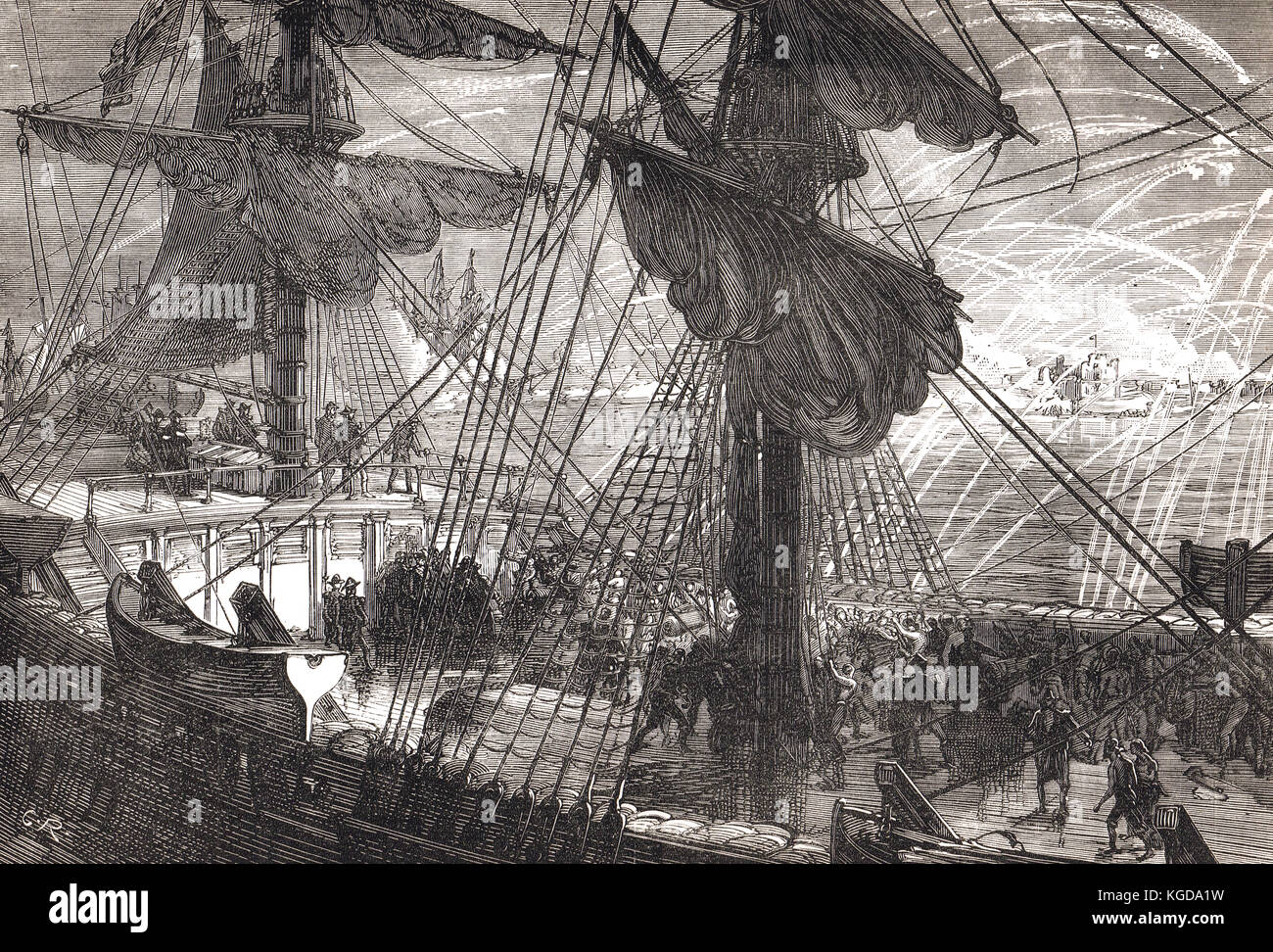The bombardment of Flushing, Netherlands, 1809, The Walcheren Campaign during the War of the Fifth Coalition, Napoleonic Wars

Image details
Contributor:
Historical Images Archive / Alamy Stock PhotoImage ID:
KGDA1WFile size:
46.7 MB (5.5 MB Compressed download)Releases:
Model - no | Property - noDo I need a release?Dimensions:
4903 x 3327 px | 41.5 x 28.2 cm | 16.3 x 11.1 inches | 300dpiDate taken:
1880More information:
This image could have imperfections as it’s either historical or reportage.
Original illustration from British Battles on Land and Sea circa 1880. Info from wiki: In July 1809, the British decided to seal the mouth of the Scheldt to prevent the port of Antwerp being used as a base against them.[1] The primary aim of the campaign was to destroy the French fleet thought to be in Flushing whilst providing a diversion for the hard-pressed Austrians. However, the Battle of Wagram had already occurred before the start of the campaign and the Austrians had effectively already lost the war. The French forces were commanded by Jean-Baptiste Bernadotte, who had just been stripped of his command after disobeying orders at Wagram. Dismissed from Napoleon's Grande Armée, Bernadotte returned to Paris and was sent to defend the Netherlands by the council of ministers. He led the French forces competently and although the British captured Flushing, after a ferocious bombardment, and the surrounding towns on 15 August, he had already ordered the French fleet to Antwerp and heavily reinforced the city. With the main objective for the British out of reach, the expedition was called off in early September. Around 12, 000 troops stayed on Walcheren, but by October only 5, 500 remained fit for duty. In all, the British government spent almost £8 million on the campaign. Along with the 4, 000 men that had died during the campaign, almost 12, 000 were still ill by February 1810 and many others remained permanently weakened. Those sent to the Peninsular War to join Wellington's army caused a permanent doubling of the sick lists there.